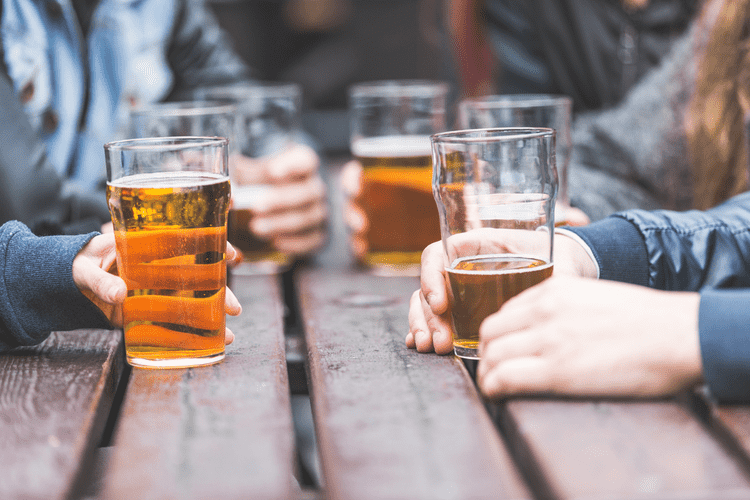Alcohol withdrawal can begin within hours of ending a drinking session. If you struggle with drinking or struggling to maintain your recovery from alcohol addiction, The Recovery Village Drug and Alcohol Rehab can help. Even after being sober for years, the potential for an alcohol relapse is always possible. However, just because a relapse occurs doesn’t mean someone has failed recovery. Relapse can be part of the recovery process, and it can strengthen someone’s dedication to long-term sobriety if it occurs and is properly handled.
Likewise, if you have not previously completed alcohol rehab after alcohol detox, you should consider this as a way to increase your chances of long-term sobriety. The Recovery Village aims to improve the quality of life for people struggling with substance use or mental health disorder with fact-based content about the nature of behavioral health conditions, treatment options and their related outcomes. We publish material that is researched, cited, edited and reviewed by licensed medical professionals. The information we provide is not intended to be a substitute for professional medical advice, diagnosis or treatment. It should not be used in place of the advice of your physician or other qualified healthcare providers. For example, practice on some visually presented tests resulted in improved performance on other visually presented tests but did not seem to improve performance on tests that depended primarily on touch.
For Some, Day Five Brings Relief
To specifically answer the question, “Can alcoholics drink in moderation? Our emotions influence our thoughts and can be a big driver of how our minds and bodies react. Understanding your emotional needs http://artdesain.ru/81323-professionalnyy-spa-uhod-za-rukami-i-nogami-professional-spa-treatment-stock-photos.html and meeting them (or finding support to help you meet them) is important. The biggest sign of an impending emotional relapse is poor self-care which includes emotional, psychological, and physical care.

Let’s pick apart this powerful phenomenon and find out how to help the recovering alcoholic who has suffered a relapse. Recovery is lifelong, and a relapse can happen at any time, even after years of not drinking. Surround yourself with supportive loved ones, attend self-help group meetings, and/or go to therapy sessions. The truth is, it doesn’t matter how other people drink, how often, or what happens when they do. Experience has shown me – time and again – that a great life and alcohol don’t mix.
What Type of Rehab Aftercare Programs Are Available?
When the time comes to have those important, intimate talks (whether one-on-one or with a small group), choose a location that’s private, quiet, and relaxed. Putting the alcoholic on the spot or in the spotlight can conjure up the very anxieties that stir a need to drink in the first place. In some cases, couples drug rehab could be the best option for you if you and your partner are both struggling with addiction.

“I feel like I’ve been very lucky because I don’t really have an addictive personality. I’ve never had any drugs, and I had a little taste of alcohol when I was http://www.rusmed.ru/clinic/list/1/page_12/otraslid_425 12 years old, but that’s about it,” she wrote. Elton John has been sober for more than 30 years following alcohol and drug addiction, which included cocaine.
Mild Symptoms
Those persistent symptoms might have some other cause than alcohol withdrawal. Going into the second day of abstinence from alcohol, people typically report a wide variety of experiences. For some, symptoms already start to subside, while others begin to experience more severe ones. Those https://colornglitter.com/t/treatment-for-dry-cuticles/ who seek medical attention tend to feel better than whose who do no. The earlier the signs of an alcohol relapse are recognized in yourself or someone you love, the sooner you can take action. The sooner you take action, the greater the likelihood of maintaining long-term recovery.
- Aftercare programs are designed to give individuals ongoing assistance and continued instruction, and to provide support to enhance their chances of experiencing a successful long-term recovery.
- “Don’t respond in a way that indicates alcohol is required to celebrate or have fun.”
- About 43 percent of people who did not receive any form of treatment maintained sobriety.
- While controlled drinking may be feasible for some, it’s definitely not for everyone.
- These groups offer emotional support, accountability, and guidance in maintaining sobriety.